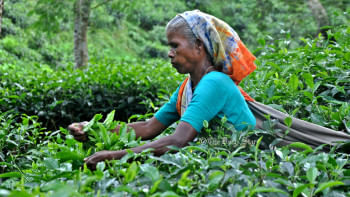Food safety is everyone’s responsibility

Time and again we have been reminded of the dire condition of food safety in Bangladesh. Although positive steps are being taken and some praiseworthy initiatives are in place, we still have a long way to go in ensuring safe food for all.
The important thing to understand is that it is a collective responsibility. From farmers to consumers, and from corporations to the government, there is a staggering number of stakeholders or entities involved, and any chain is only as strong as its weakest link.
We are in this together. As the dictum goes, food safety is a shared responsibility.
Consumers have a huge role to play in this.

"It is not possible for one single institution or stakeholder to fully control food safety," Monzur Morshed Ahmed, member, Bangladesh Food Safety Authority (BFSA) said, explaining, "There may be an eatery or shop in a neighbourhood where adulterated food is being sold, and it sometimes happens that the locals will know of this prior to any formal regulatory body. And if the locals take action (inform the authority, or refuse to buy from there), the seller will be bound to rectify."
One can think of it simply as a demand-and-supply thing. "The more aware and conscious demand side (consumers) will be, the more responsible supply side (businesses) will become," said Khalilur Rahman Sajal, Executive Director of Voluntary Consumers Training & Awareness Society (VOCTA).
He added that it is then in turn the responsibility of governmental and non-governmental bodies to educate consumers and create awareness on food safety. Consumers must be made aware of their rights.
Among various laws, the Food Safety Act of 2013 has been a monumental step in providing a proper legal framework, appreciated by many, including the consumer rights activist Khalilur Rahman Sajal, who commented, "This law is very much adequate, but what's lacking is proper implementation."
In this regard, Monzur Morshed Ahmed of BFSA pointed out, "There is a humongous difference between making a law and implementing it. We have to keep in mind our capacities, circumstances, consumer awareness level, budget, etc. Change does not happen overnight. What's important is whether we are moving forward or not, in the right direction. If that's happening, we will get the results gradually, in course of time."
He further said BFSA in addition to regulation and monitoring undertakes several campaigns to raise consumer awareness on food safety, through various media and formats, such as advertisements and cultural events and programmes.
On the other hand, a bulk of responsibilities surely lies on the supply side.
Well, the casually termed 'supply side' is of course an immensely complex value chain spanning numerous stakeholders; farmers, middlemen, food processors, food handlers, retailers, etc.
Let's look at just one sector: milk, something we can all relate to.
Professor Raihan Habib, head of the Department of Dairy Science in Bangladesh Agricultural University, expressed his concern on the farmers' end, an early stage of the supply chain. "Generally speaking, training, awareness, and governance are so poor that many farmers cannot deliver high quality milk," he said, adding that many do not even have refrigerators or proper storage facilities for milk.
BFSA's member, Ahmed, also showed a similar concern. "A lot can happen in the time period between milking the cow and handing over the milk to a processing plant," he commented.
There is also the responsibility of enforcing good agricultural practices, not only to ensure nutrition and safety, but also for agricultural sustainability in the long run. "We have to research or look into available data and find out what systems work best for our country, be it in terms of cow breeds or cow feeds," Dr Habib said.

When it comes to milk, the processing industry plays a huge role in maintaining not just food safety, but food security as well.
Explaining with UHT milk, he continued, "Milk is given an ultra-high temperature treatment for just a limited few seconds, which kills off harmful bacteria and other injurious components, thus making it safe to drink.
At the same time, we have to take into consideration food security -- the continuous availability of milk. Milk has seasonal fluctuations in our country. And UHT milk, in smartly packaged aseptic cartons, can last for several months in room temperature. Hence, surplus processed milk can be used to compensate for fluctuations in supply."
The professor also stated that honesty is crucial among the middlemen, observing that the formal market of milk is significantly small when compared to the informal one. And of course, we all know informal market is more difficult to monitor or regulate.
Dr Habib opined that a lack of transparency prevails in the overall dairy sector in general.
In addition to that, it also ought to be noted that unsafe food is not always due to unscrupulous activities. Sajal said, "We have to keep in mind that food sometimes becomes unsafe unintentionally. It is not always for an ulterior motive. We must identify and curb unintentional adulteration of food as well, by ensuring proper infrastructure, system, and awareness."
Indeed, a lot needs to be improved in terms of food safety. But to put it simply, if all of us do our bit -- as a consumer, as a cook, seller, intermediary, regulator, or a farmer -- we can surely one day ensure safe food for all. Food safety is truly a shared responsibility!

Photo: Collected

 For all latest news, follow The Daily Star's Google News channel.
For all latest news, follow The Daily Star's Google News channel. 



Comments